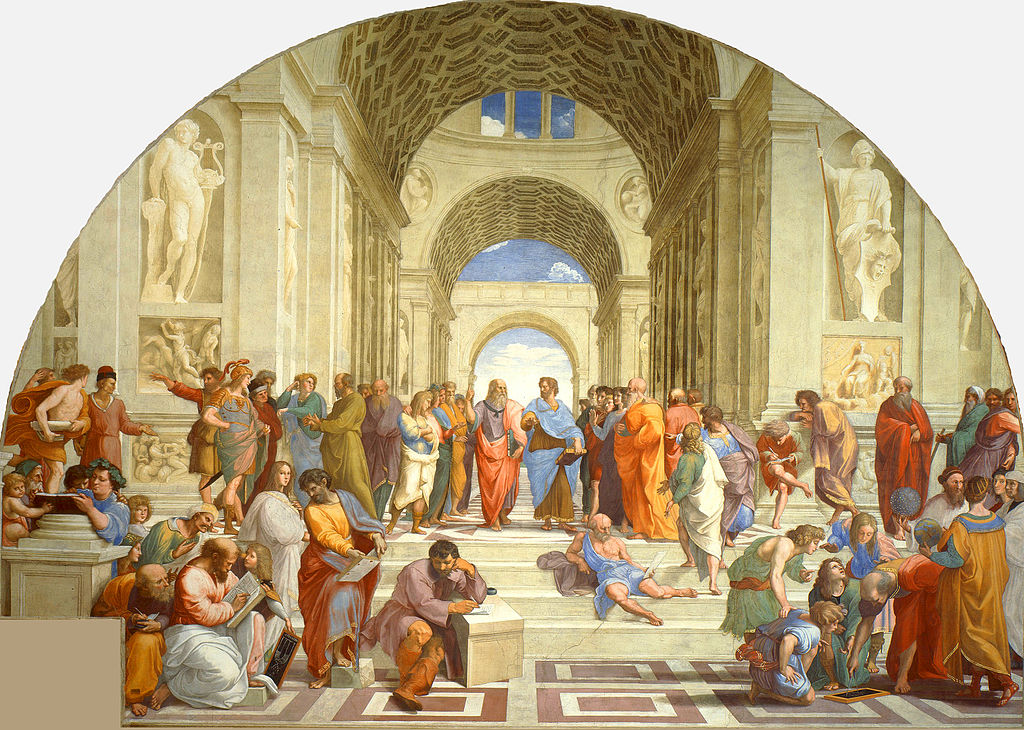Salvete, commilitones! Chairete, philoi!
For everyone normal out there: Welcome, friends of RTR!This is our newly re-opened Academy of History. And even though the painting of Raphael might you remind you of Plato's original Academy, the painting itself is very inclusive of the other schools of philosophy, too. So yes, if you are an Aristotelian, or a Stoic, or an Epicurean, you are also very much welcome here- and we are in desperate need of sceptics!
At Rome Total Realism we have a proud tradition of dicussing historical matters both within our team and within the community. This shall be continued after the release of RTR 8's 4.0 version. There is no strict restriction on topics concerning the area and the era portrayed by our mod, but of course we favour that!As I am the lead historian of RTR VIII, I will be here to moderate if needed, but please don't feel like you have to agree with me or any other team members just because we are "officials"- we like a healthy debate much more
Of course sometimes you might feel like you are losing a discussion and no matter what arguments you bring, you can't convince anyone of your opinion. Pretty much like this:
Or you just go crazy like good old Zeno when he found out in Elysium that the Stoic school he fathered largely disagreed with him:
But who cares! It's about the fun, and about the learning- and I surely hope to learn a lot of new things from you guysSo, please go ahead and suggest a topic, present a bold claim, or simply ask a modest question- let's have some craic! (Oh well, that's not too ancient Greek, is it? Whatever, some Guinness would be a nice addition to a Symposion)











 Reply With Quote
Reply With Quote





